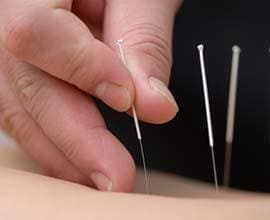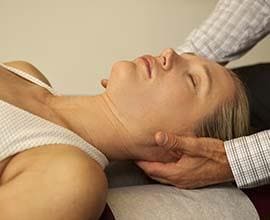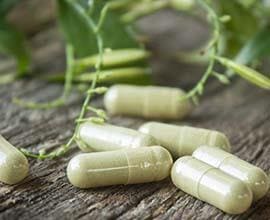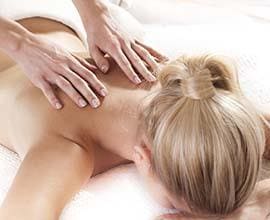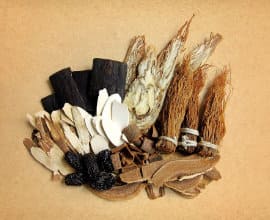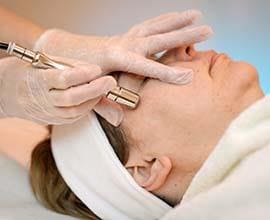How does Chinese Medicine work?
We generally do not like visiting the doctors until it is a severely debilitating condition. For chronic conditions like migraines, back pains; insomnia, infertility, pregnancy-related pains - western medicine is slow and often of no help.
This is one reason why people look to alternative medicine or Eastern medicines like Ayurveda or Traditional Chinese Medicine to reverse the condition or seek relief from chronic pain. Traditional Chinese Medicine is one such complementary medicine style. But what is it and how can it prevent challenging health issues? Keep reading to learn more. Alternatively, talk to our specialists on 07 3186 0587
TCM views the body as a whole and aims to treat the symptoms in a holistic way. The practice aims to restore the Qi in the body and boost health. It can be beneficial for treating chronic conditions, gynaecological and gastrointestinal disorders.
Professional athletes, fitness enthusiasts and celebrities swear by the benefits of TCM. Kobe Bryant, Michael Phelps, Jennifer Aniston, Gwyneth Paltrow and Robert Downey JR are just some of the celebrities who are fond of acupuncture and cupping. They have been vocal in highlighting the benefits of TCM.
Core Principles of TCM
TCM works on the following core principles:
- Self-healing - Our body can heal itself
- We are connected to nature - Our body responds to changes in the outside environment. Learning the proper ways to handle the seasonal changes are essential to keep the body in equilibrium
- Integrated - Every part of the body is connected. All the organs have a specific function and help other organs in their functioning. An issue with one organ system can have a domino effect and affect our overall well-being. Your mental health - emotions and thoughts can have an impact on your physical body
- Smart - Our body can indicate a problem with our health. Understanding these signs can prevent complications
Our Qi can get affected by external factors like stress, weather, fear, depression or poor nutrition.
Yin and Yang
A living being is sustained by two opposite forces of energy called the Yin and Yang. They make up the Qi or body energy that flows through our body via meridians. There are 12 meridians and each relates to an organ in the body.
Qi is also a force that exists and binds everything in the universe. That means, your thoughts, emotions and your body have Qi. Even the Earth and other planets or stars have Qi.
Yin and Yang should be in balance to have good health and emotions. An imbalance in the Qi can lead to an illness.
Pollution, stress, overeating, excessive physical activity or negative emotions can increase the Qi. Lack of sleep, food, shelter, mental stimulation can create a deficiency of Qi.
Yin organs - Liver, Heart, Spleen, Lungs and Kidney
Yang organs - Gall bladder, stomach, bladder, small intestine and large intestine
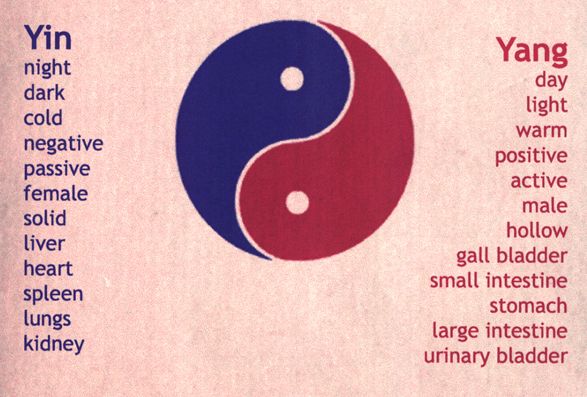
Qi flows through the organ systems and it is believed to stay in an organ for roughly 2 hours. Like the biological body clock, there is a Chinese or the Qi body clock. You can make the most of your energy when the organs are performing at their peak. For example, the stomach is at its peak between 7 am to 9 am. This is why it is recommended to eat a heavy breakfast during that time. Lungs are at their strongest between 3 am to 5 am. If you have recurring problems at certain hours of the day, it could mean a certain organ is not working well. Do inform your TCM practitioner and they will be able to treat the underlying condition.
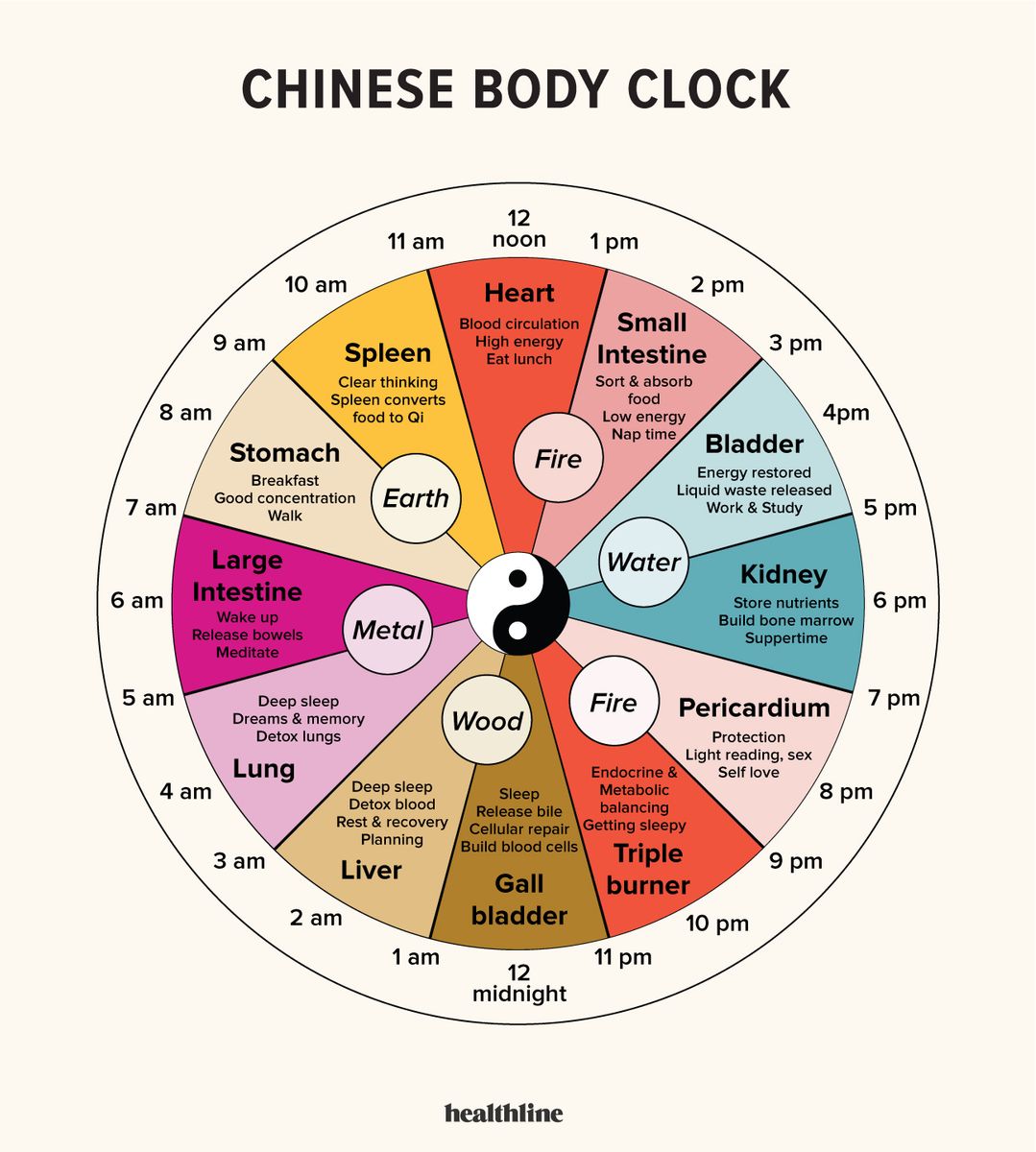
Five Elements or Five Phases
The five elements are wood, earth, metal, fire and water. An individual has a blend of these elements. The elements are in flux and each element can become dominant and have an impact on overall health.
Your TCM practitioner will ask you questions and the information will be analysed against the Five Elements Theory.
The five elements and the associated organs are as follows:
- Wood - Liver and Gall Bladder
- Fire - Heart, Small Intestine, Pericardium, Sympathetic and Parasympathetic nervous system
- Earth - Stomach, Spleen and Digestive Processes
- Metal - Lungs, Colon and Skin
- Water - Kidney, Bladder, Bones and Endocrine System
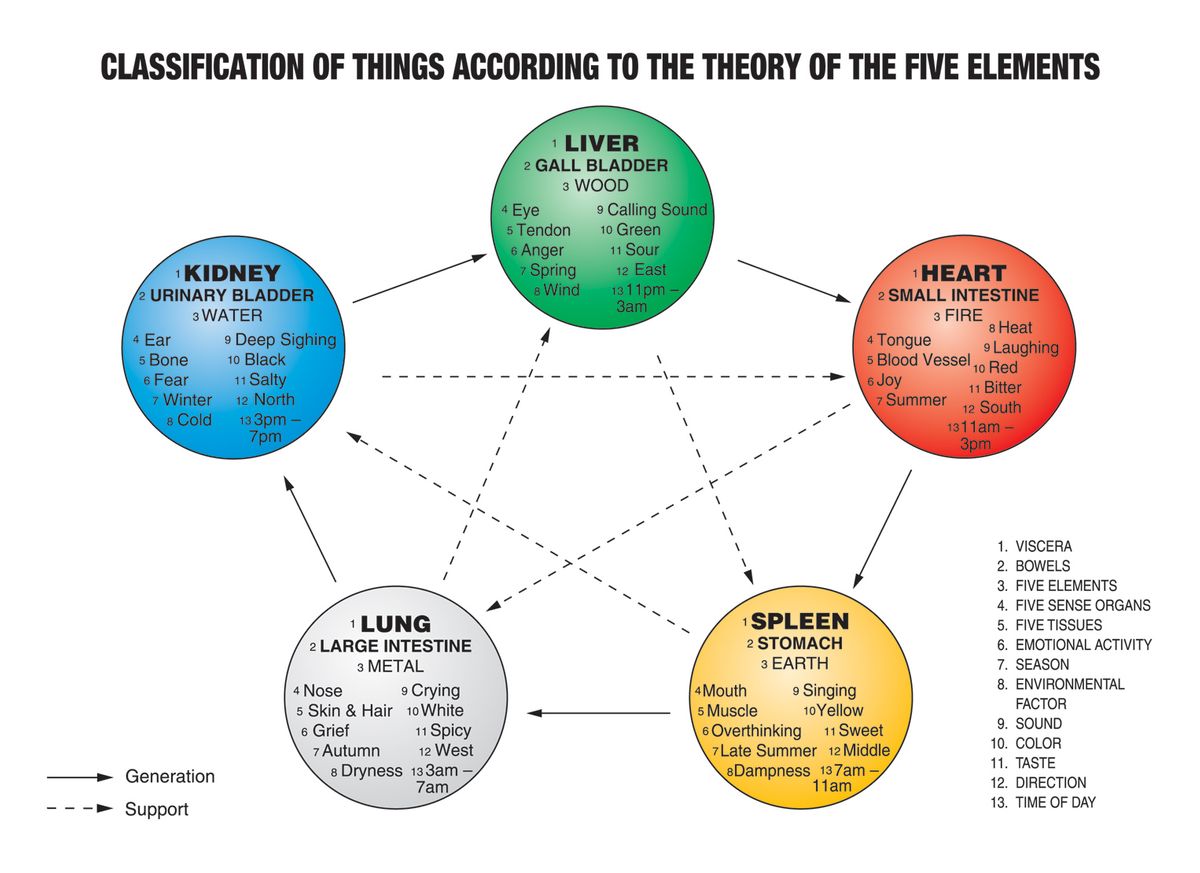
Herbs, meditation, acupuncture, moxibustion and cupping are some of the techniques used to restore Qi.
In acupuncture, needles are placed on specific points which are connected to the meridians. The goal of acupuncture is to remove the blocked Qi. If you have chronic pain, headache, migraines or arthritis, acupuncture is worth a shot. Meditation, deep breathing and tai chi are other techniques to reduce stress and improve your mental health. Gentle exercise and yoga can stimulate movement and help with emotion regulation.
Lastly, a nutritious diet is essential for a balanced Qi. Nourish your body with healthy and balanced meals. Depending on your health condition, your practitioner will formulate herbs best suited for your health condition.
References
- https://www.nlm.nih.gov/exhibition/chinesemedicine/yin_yang.html
- https://www.betterhealth.vic.gov.au/health/conditionsandtreatments/chinese-herbal-medicine
- https://www.forbes.com/sites/margauxlushing/2018/06/18/what-is-traditional-chinese-medicine-and-what-can-it-treat/?sh=4cb79ea36e5d
- https://www.nature.com/articles/d41586-018-06782-7
- https://www.ellecanada.com/culture/celebrity/jennifer-aniston-is-into-acupuncture-and-3-step-skincare
- https://tryacupuncture.org/gwyneth-paltrow-relies-on-traditional-chinese-medicine/
- https://time.com/4443105/cupping-rio-olympics-michael-phelps/
- https://acupuncturela.org/celebrities-acupuncture/
- https://www.tcmworld.org/what-is-tcm/five-elements/
- https://www.amcollege.edu/blog/qi-in-traditional-chinese-medicine
- https://www.tcmworld.org/what-is-tcm/five-elements/
- https://www.mosherhealth.com/mosher-health-system/chinese-medicine/yin-yang
- https://www.healthline.com/health/chinese-body-clock#about
RELATED ARTICLES
- Can you mix Traditional Chinese Medicine and Western Medicine?
- Traditional Chinese medicine and psoriasis
- What are the main herbs used in Chinese medicine?
Traditional chinese medicine
- Natural Candida Treatment
- TCM for Fatigue
- Chinese Herbalist
- Chinese Herbs for Fertility
- Herbal Medicine for Headaches
- Chinese Medicine for Stress
- Chinese Medicine for Thrush
- Herbal Weight Loss Programs
- TCM for Psoriasis
- Our Practitioners
Service Areas
Reviews
1 reviews
Search Help Section by Service
Search our information section by a specific service. Simply click the tile below.

